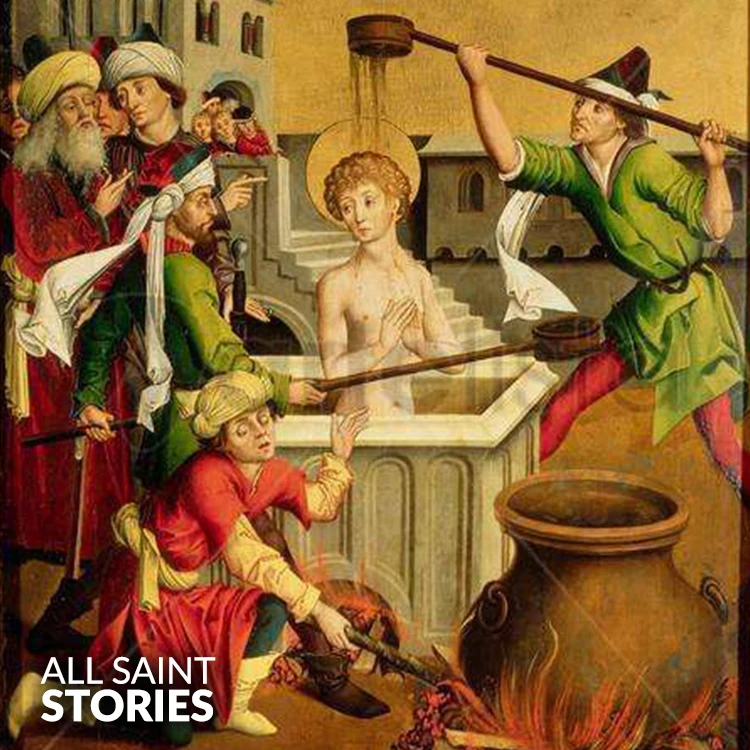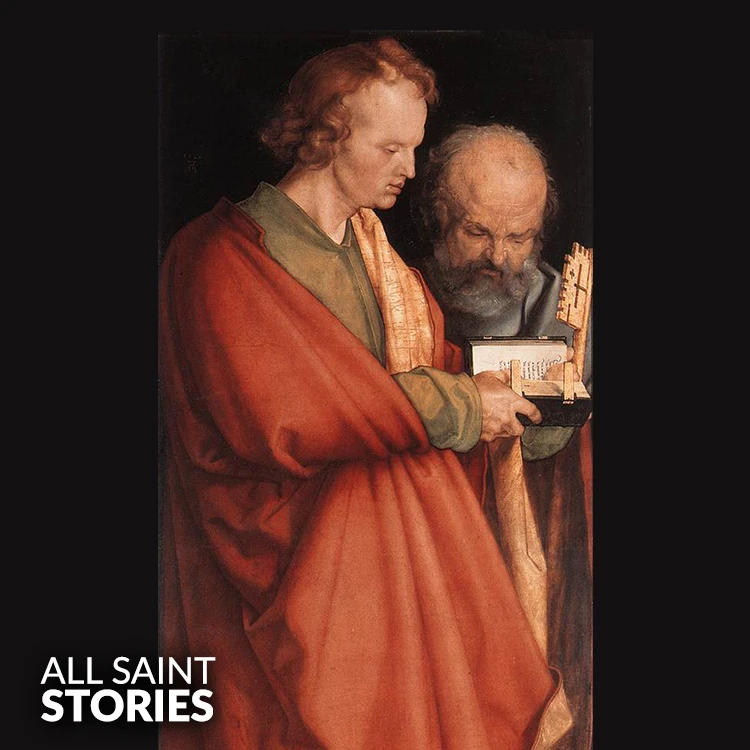"Saint John, beloved disciple of Jesus, intercede for us before the throne of God. Guide us with your wisdom and help us to live in love, following Christ's example, as you did. Grant us the grace to remain faithful and strong in our faith, and lead us to a deeper relationship with God. Amen."
ST. JOHN THE APOSTLE
ST. JOHN THE APOSTLE

St. John the Apostle, one of Jesus’ twelve disciples, was known as the "Beloved Disciple" and the author of the Gospel of John, three Epistles, and the Book of Revelation. He was the only apostle to remain with Jesus at the crucifixion and was entrusted with the care of the Virgin Mary. He lived to old age, dying around 100 AD in Ephesus. His feast day is celebrated on December 27.
St. John the Apostle was one of the twelve disciples chosen by Jesus and played a central role in early Christianity. He was the son of Zebedee and Salome and the younger brother of St. James the Greater. Along with Peter and James, he was part of Jesus’ inner circle, witnessing key events such as the Transfiguration, the raising of Jairus’ daughter, and Jesus’ agony in Gethsemane.
John is often referred to as the "Beloved Disciple" in the Gospel that bears his name. He had a deep and intimate relationship with Christ, reflected in the fact that he was the only apostle present at the crucifixion. As Jesus was dying on the cross, He entrusted His mother, Mary, to John's care, saying, "Behold your mother" (John 19:27). This act highlights John's role as a spiritual son to Mary and the protector of the early Christian community.
After the resurrection, John became a leader in the early Church. He preached in Jerusalem and later traveled to Ephesus, where he spent much of his later life. According to tradition, during the reign of Emperor Domitian, he was exiled to the island of Patmos, where he received the visions that formed the Book of Revelation. After Domitian's death, John returned to Ephesus, where he continued to guide the Christian community.
John was the only apostle who was not martyred. He died peacefully around 100 AD, making him the longest-living apostle. His theological writings, especially the Gospel of John, emphasize Jesus as the divine Word made flesh and highlight love as the foundation of Christian life. His three Epistles reinforce this theme, urging believers to walk in the truth and love one another.
His tomb in Ephesus became a revered pilgrimage site, and his influence extended into Christian theology, shaping the Church’s understanding of Jesus’ divinity and love. He is honored as a patron saint of love, loyalty, writers, and theologians. His legacy continues through the writings attributed to him, which remain essential to Christian teaching. His feast day is celebrated on December 27.
Video Not Found
The information on this website is compiled from various trusted sources. While we aim for accuracy, some details may be incomplete or contain discrepancies.
If you notice any errors or have additional information about this saint, please use the form on the left to share your suggestions. Your input helps us improve and maintain reliable content for everyone.
All submissions are reviewed carefully, and your personal details will remain confidential. Thank you for contributing to the accuracy and value of this resource.
Credits & Acknowledgments
- Anudina Visudhar (Malayalam) – Life of Saints for Everyday
by Msgr. Thomas Moothedan, M.A., D.D. - Saint Companions for Each Day
by A. J. M. Mausolfe & J. K. Mausolfe - US Catholic (Faith in Real Life) – Informational articles
- Wikipedia – General reference content and images
- Anastpaul.com – Saint images and reflections
- Pravachaka Sabdam (Malayalam) – Saint-related content and insights
We sincerely thank these authors and platforms for their valuable contributions. If we have unintentionally missed any attribution, please notify us, and we will make the correction promptly.
If you have any suggestion about ST. JOHN THE APOSTLE
Your suggestion will help improve the information about this saint. Your details will not be disclosed anywhere.
© 2026 Copyright @ www.allsaintstories.com








 English
English
 Italian
Italian
 French
French
 Spanish
Spanish
 Malayalam
Malayalam
 Russian
Russian
 Korean
Korean
 Sinhala
Sinhala
 Japanese
Japanese
 Arabic
Arabic
 Portuguese
Portuguese
 Bantu
Bantu
 Greek
Greek
 German
German
 Dutch
Dutch
 Filipino
Filipino